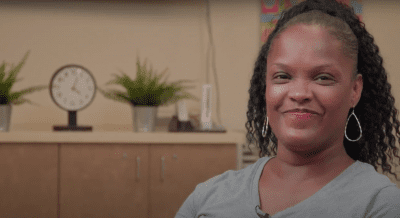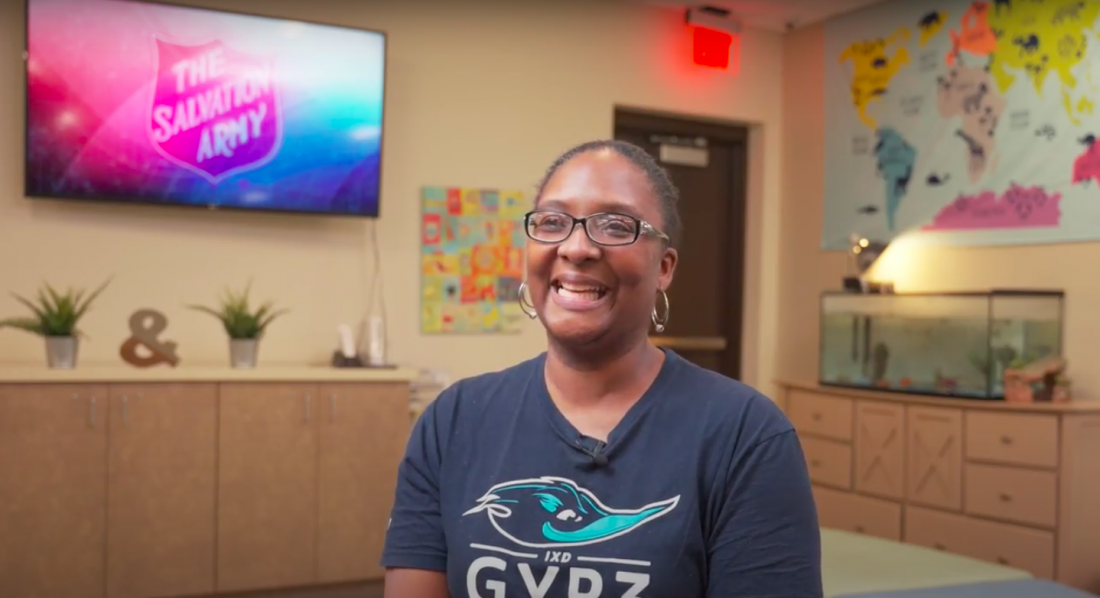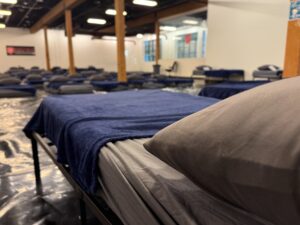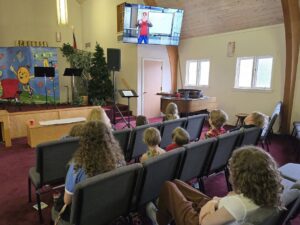When Zaporah Boyd and Tamara McClendon began their journey with The Salvation Army, they were clients at The Salvation Army Phoenix Emergency Family Shelter. Now, they work there, and help other families get back on their feet and out of homelessness.
Boyd sought assistance from The Salvation Army after a kitchen fire took place at her home in Mesa, Arizona. She was pregnant and she and her daughters were unexpectedly homeless.
“We lost everything,” she said. “Basically, we didn’t have anywhere to go. I did stay with a friend and a family relative, but it didn’t work out.”
She and her kids were sleeping at a hospital at night and would find ways to keep busy during the day. Then, she got a call that housing was available for them at The Salvation Army Phoenix Emergency Family Shelter.
“We had somewhere safe to lay our heads,” Boyd said. “I felt safe here.”
McClendon and her kids were homeless and living in hotels for two years before finding refuge at the shelter. She and her family made the move from out of state to Arizona, where they lived at another hotel. There, she called a local housing hub line and was connected with the shelter.
“Everything just fell in place. I had the mindset to move forward,” McClendon said. “It made my stay easy because I knew what it was that I wanted to do. [The Salvation Army] actually helped me to move forward [with] everything that I needed to do.”
Both Boyd and McClendon took full advantage of the services, classes and activities offered to them and their families. The standouts were the resume-building workshop, as well as the abundance of family activities offered at the shelter.
Boyd said the resume class helped her craft a resume that garnered a lot of interest from employers as she searched for a job.
“It helped me because I didn’t quite know what to put on my resume. The vocational coordinator was here to help me along the way. He helped tweak my resume,” Boyd said. “I also used the same resume to get the job here.”

And every chance they got, McClendon, Boyd and their children joined the family activities the shelter hosted.
“They had things here for the families to do, so you just won’t be in your room. You can still get out and enjoy life, even while things are still difficult,” Boyd said. “So me and my family, we participated in the activities—whatever they had. It was to keep us busy, [and]…keep the momentum going.”
“We participated in almost every activity that we could when I wasn’t working,” McClendon added. “It really brought [me and my kids] closer.”
Graduating the shelter program was an important milestone for Boyd and McClendon.
“I felt great. I felt like I actually accomplished something,” Boyd said. “You need those small little victories in life.”
McClendon is in awe of the progress she made at the shelter.
“I’m still overwhelmed,” McClendon said. “It’s still truly amazing to know how someone could come in so broken at the Lord’s place and then rise up so fast—[and] even now just still going forward and how everything is just progressing.”
They secured housing for themselves and their families after completing the program. And today, they work at the shelter.
“When I was [living] here, I would always say, ‘I would love to work somewhere like this just to give back,’ but I didn’t think that would actually happen,” Boyd said. “I completed the program and after a while, that’s when this position came up. I applied, and here I am.”
Boyd is the Lead Program Assistant and McClendon is a Program Assistant at The Salvation Army Phoenix Family Services, which manages the shelter. They function as the initial contact for families joining the shelter and help clients with anything they may need upon their arrival.
“I let each and every family know that, ‘It is possible to go through what you’re going through and…come out successful. I know it’s hard now because you’re in it,’” Boyd said. “It has a different impact on the families when they see that, ‘Hey, she knows what I’m going through. She made it out, so I can make it out.’”
McClendon echoed how impactful it is for residents to hear their stories.
“It is really amazing how you can go and talk to another family, and you can say, ‘Hey, this was my room right here. This was where I was just a few months ago.’ And everyone’s reaction is just like, ‘What, really?’” McClendon said. “I encourage them. I talk to them. I tell them about my situation.”
Looking back, Boyd reflects on her experience at the shelter fondly.
“When you’re going through a lot, sometimes you don’t want to worry about the food. You don’t want to worry about the clothing. You don’t want to worry about those things,” she said. “You just want to get somewhere where you can sit, collect your thoughts and then move to the next step. This is what this program provides. I’m very happy with it. I think it’s a great program—one of the best.”
Do Good:
- See how The Salvation Army fights homelessness.
- You can make an impact in the Fight for Good with whatever time and skills you have. Whatever your interest, there is a you-sized need for goodness in the world. Get the guide on How To Be An Impactful Volunteer and get in the Fight for Good today.
- Learn more about the Salvation Village pallet home community housing those who were experiencing homelessness in Wilmington, California.












